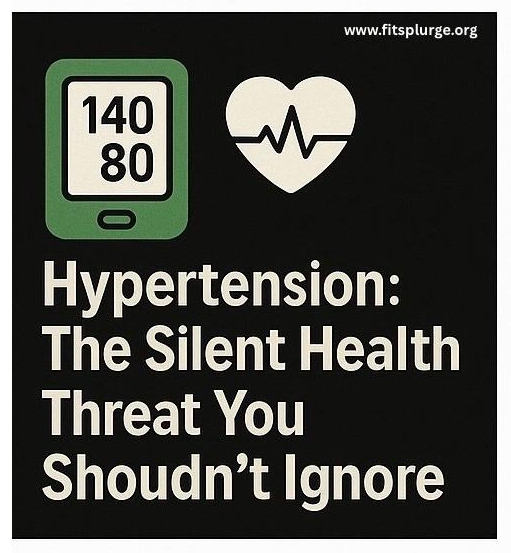Hypertension, commonly known as high blood pressure, is a medical condition that affects millions of people worldwide. Often referred to as the “silent killer,” hypertension typically has no warning signs or symptoms, yet it can lead to serious health issues such as heart disease, stroke, kidney failure, and vision loss. Understanding what hypertension is, its causes, risk factors can help you prevent and manage it better.
What Is Hypertension?
Hypertension occurs when the force of the blood against the walls of the arteries remains consistently too high. Blood pressure is measured in millimeters of mercury (mmHg) and is expressed in two numbers:
•Systolic pressure (upper number): pressure when the heart beats.
•Diastolic pressure (lower number): pressure when the heart rests between beats.
A normal blood pressure reading is typically around 120/80 mmHg. A consistent reading of 130/80 mmHg or higher is considered high blood pressure.
Causes and Risk Factors
•Genetics and family history
•Age (risk increases with age)
•Obesity and physical inactivity
•High salt (sodium) intake
•Excessive alcohol consumption
•Stress
•Chronic conditions (e.g., diabetes, kidney disease)
•Tobacco use
Complications of Hypertension
If high blood pressure isn’t properly managed, it can damage the body over time. Major complications include:
•Heart attack
. Stroke
•Heart failure
•Aneurysm
•Kidney damage
•Vision loss
•Cognitive problems and dementia
Hypertension is diagnosed with a blood pressure monitor – a sphygmomanometer You have to monitor it and record elevated levels over a period of time to confirm you have hypertension. Your doctor will most likely take multiple readings, often across multiple visits to diagnose hypertension. Your doctor may also recommend blood tests, urine tests, or an ECG to check for damage to organs.
Prevention and Management
Lifestyle Changes:
•Healthy Diet: Choose healthy foods that contain fruits, vegetables, whole grains, and lean proteins. Reduce sodium and processed foods.
•Exercise: Aim for at least 150 minutes of moderate exercise per week.
•Limit Alcohol and Quit Smoking: Alcohol and smoking both play significant roles in the development and worsening of hypertension (high blood pressure)
•Stress Reduction:
Avoid those things that induce stress and practice relaxation techniques such as meditation and deep breathing to relieve stress
•Regular Monitoring: Keep track of your blood pressure at home and attend regular doctor appointments.
Remember, Hypertension is both preventable and manageable. By understanding the risks and taking proactive steps through lifestyle choices and medical guidance, individuals can reduce their risk and lead healthier, longer lives. Don’t wait for symptoms, the symptoms can be really silent. Check your blood pressure regularly and prioritize your health.
Want more recommendations tailored to your specific needs, age or lifestyle?
We are just one message/call away
Fitsplurge Cares!
Don’t forget to sign up for our newsletter for more informative articles like this.





